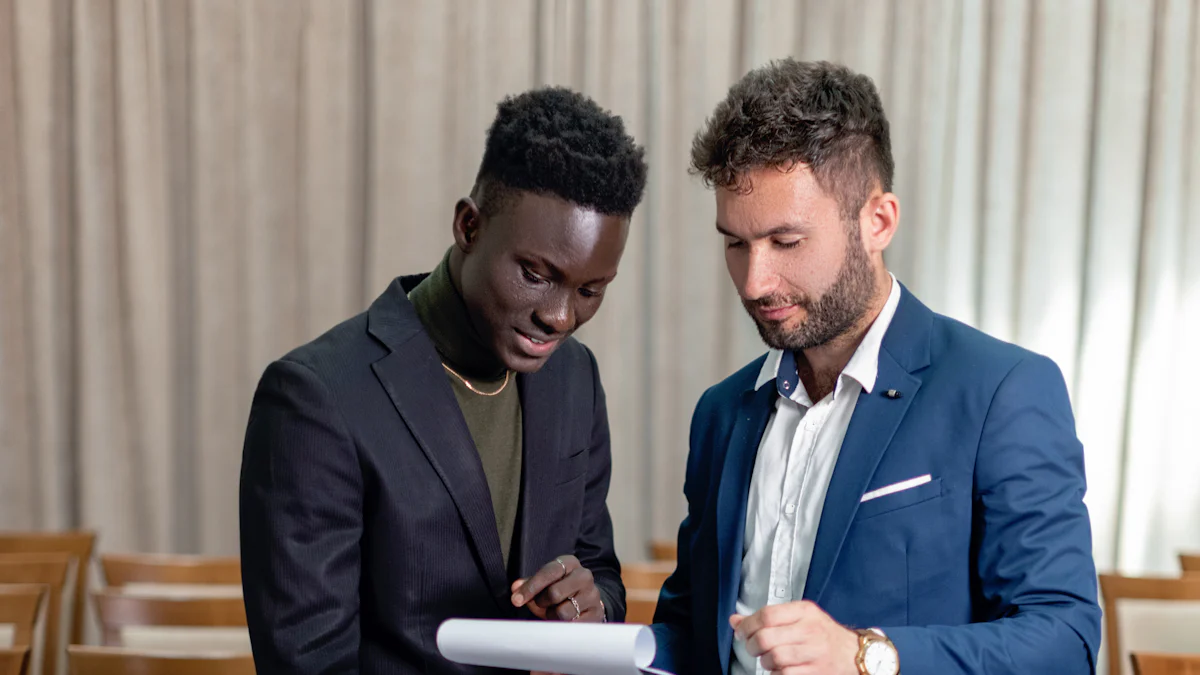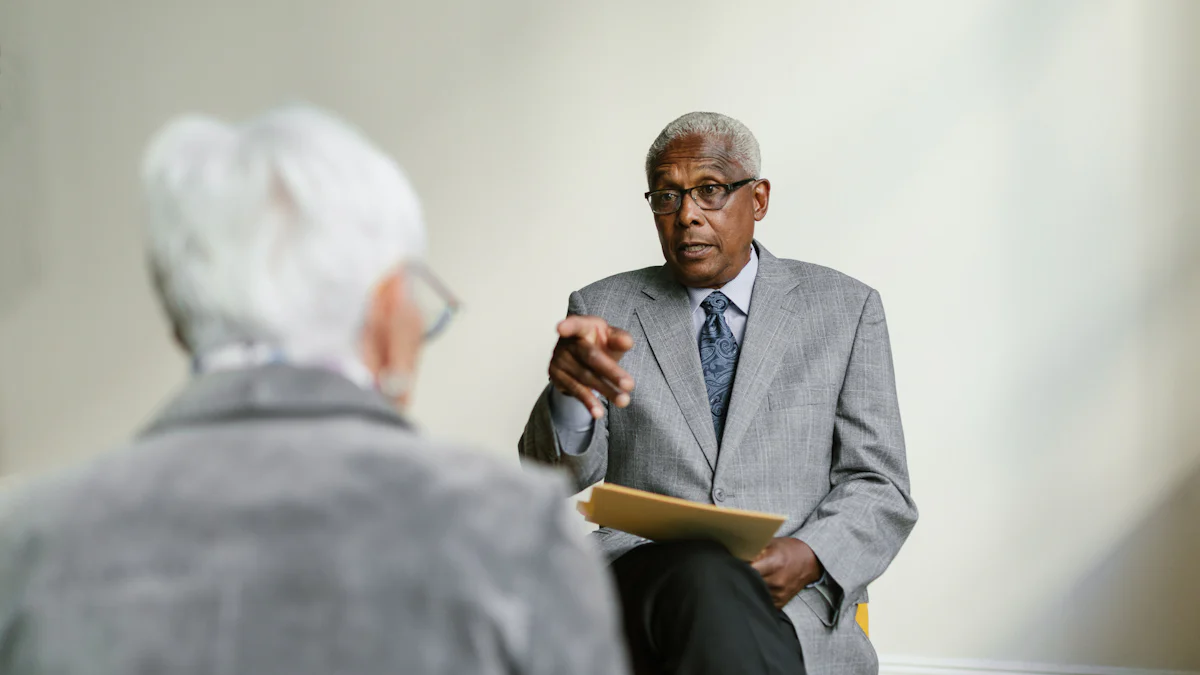What to Do When UBS Delays Superday Interview Results
Try Aihirely for
Smarter Interview Prep
Experience real-time AI support tailored to your Resume.
Boost your confidence and ace every question with
AI Mock Interview.

Image Source: pexels
Waiting for interview results can feel like forever, especially after a UBS Superday. You might find yourself asking, “UBS, how long to respond after the final interview?” or scrolling through forums like Blind for answers. Don’t worry—delays happen all the time. UBS has complex processes, and patience is key. Instead of stressing, focus on staying proactive. Remember, the wait doesn’t define your worth or potential.
Key Takeaways
-
UBS often takes time to decide after interviews. Be patient.
-
If a week passes with no reply, send a kind email. Show you are still interested.
-
Keep looking for other jobs while waiting. This keeps you busy and gives more chances.
Why UBS Delays Superday Interview Results
Internal Decision-Making and Approval Processes
UBS doesn’t rush decisions after a Superday. The hiring team takes time to evaluate each candidate thoroughly. They compare your performance with others and discuss how well you fit the role. Sometimes, multiple managers or departments need to approve the final decision. This process can take longer than expected, especially if key decision-makers are unavailable. It’s not about you—it’s about ensuring they make the best choice for the team.
High Volume of Candidates and Scheduling Challenges
Superdays often involve a large number of candidates. UBS might need extra time to review everyone’s interviews. If they’re handling multiple Superdays at once, the process can slow down even more. Scheduling follow-up meetings or discussions among busy executives adds another layer of complexity. You’re not alone in this wait, and delays don’t mean bad news. It’s just part of managing a high-volume hiring process.
UBS Prioritization and Operational Factors
UBS has many priorities beyond hiring. Sometimes, urgent business needs or operational challenges take precedence. For example, a major project or market event might shift their focus temporarily. This doesn’t mean they’ve forgotten about you. It just means hiring timelines can get pushed back. If you’re wondering “ubs how long to respond after final interview superday blind,” remember that delays are often about logistics, not your qualifications.
UBS How Long to Respond After Final Interview Superday Blind
Typical Response Time After a UBS Superday
After a UBS Superday, you might expect to hear back within a few business days. Typically, UBS takes about 5 to 7 days to respond. However, this timeline can vary depending on factors like the number of candidates or internal decision-making processes. If you’re wondering, “ubs how long to respond after final interview superday blind,” remember that delays don’t always mean bad news. Sometimes, the hiring team needs extra time to finalize decisions or coordinate approvals.
What to Do If You Haven’t Heard Back Within a Week
If a week has passed and you haven’t received an update, don’t panic. It’s common for companies like UBS to take longer than expected. Instead, take action by following up professionally. Here’s what you can do:
-
Ask for an update on your application status.
-
Reiterate your interest in the role and thank them for their time.
This approach shows that you’re proactive and genuinely interested in the position. It also gives you peace of mind while waiting for a response.
How to Interpret Delayed Responses
A delayed response doesn’t always mean rejection. Sometimes, UBS might be dealing with unexpected challenges, like scheduling conflicts or operational priorities. Other times, they could still be comparing candidates or waiting for final approvals. If you’re still asking, “ubs how long to respond after final interview superday blind,” try to stay patient. Delays often reflect the complexity of their hiring process, not your performance.
Tip: Use this waiting period to focus on other opportunities or enhance your skills. Staying productive can help you feel more in control.
Professional Follow-Up Strategies

Image Source: pexels
Crafting a Polite and Effective Follow-Up Email
Writing a follow-up email can feel tricky, but it’s a great way to show your professionalism. Keep your message short and respectful. Start by addressing the recipient by name. Mention the position you interviewed for and the date of your Superday. Then, politely ask for an update on your application status.
Here’s an example:
Subject: Follow-Up on [Position Name] Interview – [Your Name]
Dear [Recipient’s Name],
I hope this email finds you well. I wanted to follow up regarding my interview for the [Position Name] role on [Superday Date]. I’m very excited about the opportunity to join UBS and contribute to your team. I’d appreciate any updates you can share about the hiring process.
Thank you for your time and consideration. Please let me know if there’s anything else you need from me.
Best regards,
[Your Name]
This format is polite, professional, and shows your enthusiasm for the role.
Timing Your Follow-Up Communication
Timing is everything when it comes to follow-ups. You don’t want to seem impatient, but you also don’t want to wait too long. Ideally, send your email within a week of your Superday. If you haven’t heard back after that, it’s okay to follow up again after another week.
-
Avoid sending multiple emails in a short period.
Patience shows maturity, and recruiters will appreciate your understanding of their busy schedules.
Expressing Gratitude and Continued Interest
Always end your follow-up email on a positive note. Thank the recipient for their time and effort. Reiterate your interest in the role and the company. This leaves a lasting impression and shows that you’re genuinely excited about the opportunity.
Tip: A little gratitude goes a long way. It makes your email stand out and keeps the tone friendly and professional.
Exploring Other Career Opportunities
Why You Should Keep Applying to Other Roles
Waiting for UBS to respond can feel like a standstill, but you shouldn’t pause your job search. Keep applying to other roles to maintain momentum. This approach increases your chances of landing a position, even if UBS takes longer than expected. Plus, it gives you options. You don’t want to put all your eggs in one basket, right?
Exploring other opportunities also helps you stay confident. Each application and interview sharpens your skills. You’ll feel more prepared for future roles. And who knows? You might discover a position that excites you even more than the one at UBS.
Tip: Treat every application as a learning experience. It’s not just about the outcome—it’s about growing as a professional.
Networking to Expand Your Career Options
Networking is a game-changer in the finance industry. Building connections can open doors you didn’t even know existed. Start by seeking mentors. A mentor can guide you through the complexities of the field and help you grow professionally.
Here are some ways to expand your network:
-
Find a mentor within your organization or through alumni networks.
-
Attend industry events to meet professionals from various firms.
-
Polish your LinkedIn profile and engage with posts related to your field.
-
Focus on genuine relationships instead of just collecting contacts.
A strong network isn’t just about finding jobs. It’s about learning, growing, and staying informed about industry trends.
Staying Open to Unexpected Opportunities
Sometimes, the best opportunities come when you least expect them. Staying open-minded can lead to roles that align perfectly with your goals. For example, you might find an internal position that matches your skills or get referred to a role by a former colleague.
Here’s how being open can benefit you:
| Benefit | Description |
|---|---|
| New opportunities | You might discover roles that align with your long-term career goals. |
| Boosted morale | Being open to change can enhance your confidence and pride in your career journey. |
| Extended referrals | Leaving a positive impression increases the chances of colleagues recommending you for future roles. |
Note: Flexibility doesn’t mean settling. It means exploring paths that could lead to unexpected success.
Managing Expectations and Staying Resilient

Image Source: pexels
Setting Realistic Expectations for Response Times
It’s easy to feel anxious when you don’t hear back quickly. But setting realistic expectations can help you stay calm. UBS often takes longer than expected due to their thorough hiring process. Instead of expecting an immediate response, remind yourself that delays are normal.
Think of it this way: the hiring team wants to make the best decision, and that takes time. You’re not being ignored. They’re just ensuring they evaluate every candidate fairly. By keeping this in mind, you can avoid unnecessary stress and focus on what you can control.
Tip: Use this time to reflect on your interview performance and identify areas for improvement.
Practicing Self-Care During the Waiting Period
Waiting can feel draining, but self-care can make a big difference. Take breaks from thinking about the results. Go for a walk, spend time with friends, or dive into a hobby you love. These activities can help you recharge and stay positive.
Don’t forget to prioritize your health. Get enough sleep, eat well, and exercise regularly. When you feel good physically, it’s easier to stay mentally strong.
Reminder: You can’t control the timeline, but you can control how you take care of yourself.
Focusing on Long-Term Career Goals
When the wait feels endless, shift your focus to your bigger career picture. Why did you apply for this role? What’s your ultimate goal? Reconnecting with your “why” can keep you motivated.
Here’s how to stay resilient:
-
Break your goals into smaller milestones and celebrate each win.
-
Share your progress with trusted friends for encouragement.
-
Reframe setbacks as lessons to improve your approach.
-
Treat yourself when you make meaningful strides.
Resilience helps you stay positive and embrace challenges. It’s not just about this job—it’s about building a fulfilling career.
Note: Every step, even the waiting, contributes to your growth. Keep moving forward!
Delays happen, and they don’t define your abilities. Stay proactive by focusing on what you can control. Keep applying, learning, and growing. Every experience, even waiting, shapes your career journey.
Remember: You’re building resilience and skills that will serve you in the long run. Keep moving forward—you’ve got this!
FAQ
What should I do if UBS doesn’t respond after my follow-up email?
Stay calm and wait another week before following up again. Use this time to explore other opportunities or enhance your skills. 🕒
Does a delayed response mean I didn’t get the job?
Not necessarily! Delays often happen due to internal processes or scheduling issues. It doesn’t reflect your performance or qualifications. Stay positive and patient. 😊
Can I ask for feedback if I don’t get the role?
Yes, absolutely! Send a polite email requesting feedback. It shows professionalism and helps you improve for future interviews.
Tip: Always thank them for their time, even if the feedback isn’t detailed.
